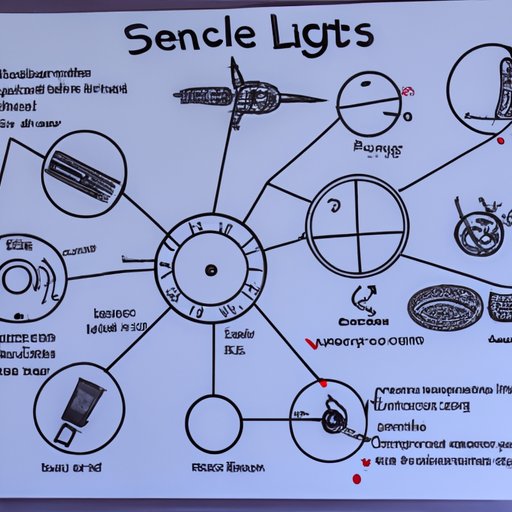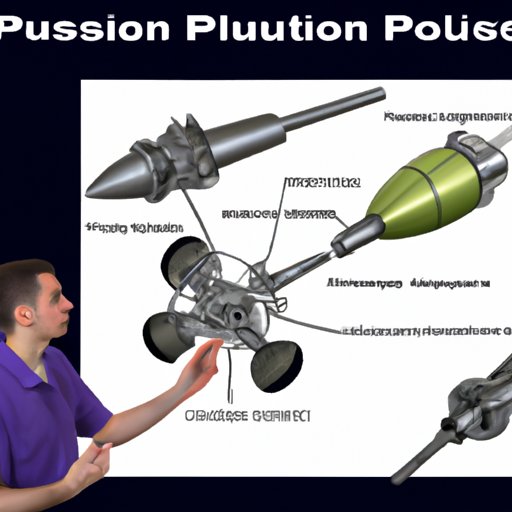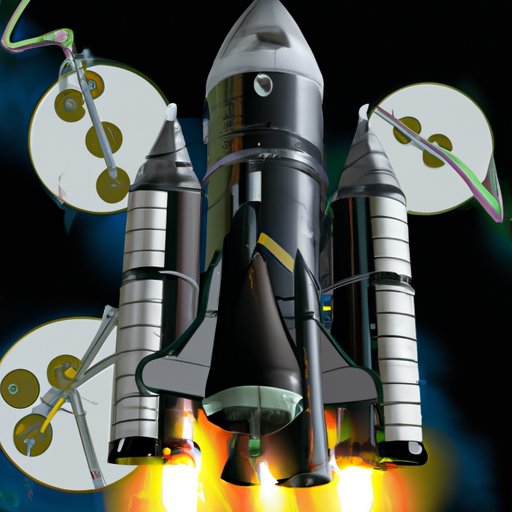Introduction
A spacecraft is defined as “a vehicle designed for space travel that is capable of carrying people or cargo,” according to the Cambridge English Dictionary. It typically consists of multiple components working together to enable a mission to be completed. In this article, we will explore the different parts of a spacecraft and how they operate, as well as the types of propulsion used and the challenges of controlling a spacecraft’s direction and speed. We will also discuss the impact of astronomical bodies on a spacecraft’s operation.

Describing the Parts of a Spacecraft and How They Operate
The structure of a spacecraft can vary greatly depending on the mission. Generally speaking, it includes the main body, which houses the payload, instruments, and other components; the propulsion system, which provides thrust for maneuvering in space; and the communication system, which enables communication with ground controllers. The spacecraft must also be equipped with power sources, such as solar panels or batteries, and control systems, such as thrusters and gyroscopes, to control its orientation in space.

Explaining the Types of Propulsion Used in Spacecraft
Spacecraft use a variety of propulsion systems to move through space. The most common type is chemical rockets, which use fuel and oxidizer to create thrust. Electric propulsion systems, such as ion engines, use electricity to generate thrust. Finally, solar sails use the pressure of sunlight to propel a spacecraft. Each type of propulsion has its own advantages and disadvantages, so engineers must consider the mission requirements when selecting a propulsion system.
Examining the Role of Rocket Engines in Spacecraft
Rocket engines are the most commonly used propulsion system for spacecraft. These engines are designed to produce high levels of thrust, allowing them to quickly accelerate a spacecraft to speeds necessary for interplanetary travel. Rocket engines also have the advantage of being relatively lightweight and efficient compared to other types of propulsion systems. However, they require large amounts of fuel and can be expensive to maintain.
Investigating the Challenges of Controlling a Spacecraft’s Direction and Speed
Navigation and guidance are essential for controlling a spacecraft’s direction and speed. This involves using sensors and software to detect and measure the spacecraft’s position in relation to its destination. Attitude control is also important, as it ensures that the spacecraft is oriented correctly during flight. This is usually accomplished by using thrusters and gyroscopes to adjust the spacecraft’s orientation.
Discussing the Impact of Astronomical Bodies on a Spacecraft’s Operation
Astronomical bodies, such as planets, moons, and stars, can have a significant impact on a spacecraft’s operation. Gravitational forces from these bodies can affect a spacecraft’s trajectory, while their orbits can also influence a spacecraft’s speed and direction. Orbital mechanics is the study of these effects and is used to design trajectories that maximize a spacecraft’s efficiency and safety.
Conclusion
In conclusion, a spacecraft is a complex system consisting of many different parts working together to enable a mission to be completed. Its structure, power sources, control systems, and propulsion systems must all be considered when designing a spacecraft. Additionally, the impact of astronomical bodies and the challenges of controlling a spacecraft’s direction and speed must be taken into account. With the right knowledge and planning, spacecraft can be designed and operated safely and efficiently.
(Note: Is this article not meeting your expectations? Do you have knowledge or insights to share? Unlock new opportunities and expand your reach by joining our authors team. Click Registration to join us and share your expertise with our readers.)
